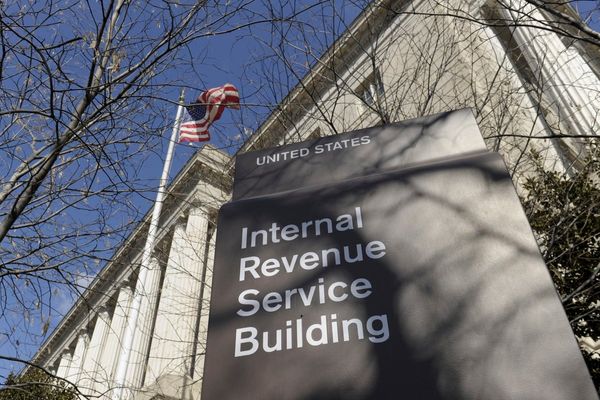
Marc Benioff, cofounder and CEO of Salesforce, has taken a lot of hits in recent months. First, activist investors went after him, attacking his expensive taste in acquisitions and agitating for greater efficiency at the enterprise software maker. Then, his employees lashed out: After about 8,000 of them were laid off in January, many of those who remained took to Slack—ironically, one of Benioff’s expensive acquisitions—to complain that the company’s touchy-feely culture was just a facade.
“I’m willing to take the bullets and the cuts and the vilification,” Benioff, 58, tells me during a wide-ranging interview that took place via phone while he was on a flight to the East Coast. “That’s what you have to do as CEO, especially through difficult times.”
Luckily for Benioff, at least the numbers have been kind: In early March, Salesforce released its most recent quarterly results, beating analyst estimates and setting better-than-expected projections for its next fiscal year. Revenue in the company’s last quarter was up 14% year over year while adjusted margins (excluding things like $828 million in restructuring charges) rose to 29.2%, the highest in its 24-year history.
The earnings report was good news for Benioff and for his company’s stock price. But that doesn’t mean the longtime tech leader is in the clear. For starters, the current era of economic uncertainty is far from over, and activists are still pushing Benioff not just to keep increasing profits but to prove he can put a viable succession plan in place. (In yet another recent gut punch, former co-CEO and heir apparent Bret Taylor left in January; Benioff called the resignation “bittersweet.”) Then there’s the other, even more legacy-shaping test of his mettle: Over the past few years, Benioff has become the poster child for stakeholder capitalism—the idea that financial stockholders are not the only interests a business should consider. That was fine when those stakeholders were happy and the economy was growing.
“It’s much harder when things are contracting than when things are expanding,” Benioff says of bringing people into his view of the world and business’s role in it.
Indeed, Benioff now finds himself having to listen to—and prove that he can answer—stakeholders with all sorts of new demands. His ability to navigate these loud voices, from employees asking for more flexible work-at-home policies to shareholders agitating for leaner operations, will prove to be a useful case study not just in Benioff’s style of “empathetic” leadership. In many ways, it could also serve as a referendum on the whole model of stakeholder capitalism.
Benioff insists he’s just as committed to the ohana (Hawaiian for “family”) culture he has cultivated at Salesforce. But he also admits that there are new challenges for CEOs. The hardest part of being a leader today, says Benioff, is “explaining the unexplainable,” a line he has now used in several interviews. What does that mean? It boils down to this: Justifying layoffs, especially after more than a decade of economic growth, is hard. Even for a gifted marketer. That’s why Benioff now finds himself having to sell his toughest product yet—that austerity, which investors are clamoring for, can coexist with ohana.
“It [layoffs] is something that you never want to have to do, but everybody knows you have to do it, because it’s just the nature of business,” says Benioff, and then quickly adds: “But that doesn’t mean that you can’t have a great company, and that you can’t be a great place to work.”

Benioff is trying to tell me that these are challenging times for business leaders—a common CEO mantra in today’s climate. At least, that’s what I think he’s trying to tell me. As is typical in conversations with the always-loquacious Benioff, the conversation soon takes a sharp turn to the philosophical.
“I think you have to have, as the Japanese say, shoshin, or beginner’s mind,” the CEO tells me. “As the leader, you have to realize that the past is gone, and that you’re going to have to create a new future. But it also means that the kind of leadership notion that you’ve had in the past is also gone. In the expert’s mind, there are few possibilities, but in the beginner’s mind, there’s every possibility.”
To be sure, the recent layoffs at Salesforce weren’t the first in its history. In 2000, when the dotcom bubble burst, Benioff laid off 20% of his workforce (and Salesforce has had small “adjustments” since). But that was before the company was public, back when it employed only 100 workers. It was also around the time that Benioff launched the company’s 1-1-1 model, which dedicates 1% of the company’s equity, 1% of its product, and 1% of employees’ time to philanthropic causes. The CEO has long championed business as the “greatest platform for change.” But he really solidified his role as one of the lead evangelists of the stakeholder capitalist movement during the pandemic.
“In the pandemic, it was CEOs in many, many cases all over the world who were the heroes,” Benioff told a remote audience during the 2021 World Economic Forum gathering, which took place online instead of in the snowy mountain town of Davos, Switzerland. “They’re the ones who stepped forward with their financial resources, their corporate resources, their employees, their factories, and pivoted rapidly—not for profit, but to save the world.”
Benioff, along with a team of other big-name execs, helped procure 50 million units of personal protective equipment like gowns and masks early on in the pandemic, shipping it from China to hospitals in the United States via chartered airplanes and trucks. As the pandemic was unfolding, demand exploded for software that helps businesses run their operations online, like Salesforce’s customer relationship management tools. Salesforce had already been hiring at a fast clip, and during the pandemic Salesforce onboarded another 20,000 employees in a one-year span—and of course many more through acquisitions like Slack.
Late last year, that growth came to a sudden stop amid concerns of a global economic slowdown. Tech companies from Amazon to Zillow started laying off workers. In January, Salesforce jumped on the bandwagon, announcing that it would cut 10% of its workforce.
True to his character and communication style, Benioff infused the bad news with hints of ohana, spelled out in a company memo: “The employees being affected aren’t just colleagues. They’re friends. They’re family. Please reach out to them,” Benioff wrote. “Offer the compassion and love they and their families deserve and need now more than ever. And most of all, please lean on your leadership, including me, as we work through this difficult time together.”
Other companies, like Amazon, have been decidedly more blunt. To wit, CEO Andy Jassy’s March 20 memo announcing a second round of layoffs: “I’m writing to share that we intend to eliminate about 9,000 more positions in the next few weeks … This was a difficult decision, but one that we think is best for the company long term.”
That all-business tone might sound harsh. But it does raise the question of how useful ohana really is to those who just lost their jobs.
While Benioff likes to say this is his third recession, many of his younger, newer hires haven’t yet lived through even one downturn during their careers. And even those who were not laid off have had to make uncomfortable changes. Early on in the pandemic, Salesforce embraced remote work, telling employees they could work from anywhere. When the company acquired collaboration tool Slack for $27.7 billion in July 2021, Benioff said integrating the product would help customers “make the digital transformation.” But that transition to remote work wasn’t as smooth as expected.

Benioff made waves when he took to Slack, not long before announcing layoffs, to ask why employees hired during the pandemic showed “much lower productivity.” To the CEO, this was an effort to solicit feedback. But to some employees, Benioff’s musings felt like a betrayal, a stark contrast to the pandemic-era benefit of getting one Friday off per month, which had just recently ended.
The reaction inside Salesforce was harsh, with some employees accusing Benioff of being tone deaf in Slack channels. Other recent cost-saving measures, such as lower annual “gratitude” bonuses and the decision to abandon Slack’s snazzy San Francisco headquarters, have also generated employee blowback. In late March, Salesforce also shuttered Future Forum, Slack’s ambitious think tank that was focused on research around remote work.
Asked whether tech employees have gained too much power in recent years, Benioff says no, and points to Slack as an effective—if lively—way to communicate directly with employees on a variety of issues. But even that direct access has its limits. “It’s hard for them [employees] because they don’t understand why you’re taking certain actions or how it’s going to affect them,” says Benioff. “It’s understandable because we’ve had an up market for more than a decade.”
In recent months, Salesforce has summoned certain employees back to the office. Some percentage of the company’s workforce will always be remote, as was the case pre-pandemic. But those who don’t have that designation are now being asked to come into the office at least a few times a month depending on their roles and teams, says Benioff, noting that tracking productivity is easier for certain functions, like sales and, to a lesser degree, engineering.
“We hired a lot of people, and those folks don’t have the benefit of knowing others and having the office experience,” Benioff says of his evolving views on remote work. “Bringing them back into the office is becoming more important than I think anyone realized.”
But again, justifying a return to office, however flexible, however backed by data, is hard to do when you’ve just spent the past three years telling employees they could work from anywhere. Just like announcing layoffs after you’ve hired hordes of new employees and told them they were like friends and family.

In recent months, Benioff has gotten caught in the crosshairs of some conservative politicians who have jumped onto the anti-ESG bandwagon. Vivek Ramaswamy, 2024 Republican presidential hopeful and former executive chairman of Strive Asset Management, which owns a small stake in Salesforce, has criticized the CEO for choosing politics over profits. And with some blaming Silicon Valley Bank’s collapse on a supposed “distraction” by diversity efforts, it’s easy to see how some of Salesforce’s speed bumps could be smeared with similar allegations.
But Benioff says his devotion to using business as a platform for societal change is intact.
“There’s been a politicization of stakeholder capitalism which is in many cases unfair,” says Benioff. “What employees want is to be treated well, and to make sure that their companies are doing the right thing, which is at the heart of stakeholder capitalism.”
Benioff has a point: Many of the times he’s taken a stand, like when he threatened to pull business out of Indiana because of an anti-LGBTQ law, came from listening to what his employees were telling him, not the other way around. At least as of now, Salesforce’s biggest activist shareholders—the ones who have actually acquired sizable stakes—are not speaking out about the company’s diversity programs, nor the fact that Benioff has made it his life mission to plant 1 trillion trees by 2030. They’re much more concerned with boosting software sales and profits. And in a succession plan.
Bret Taylor wasn’t the first co-CEO to leave Salesforce, but his departure was a surprise. So were the subsequent exits of Stewart Butterfield, the former head of Slack, and of Mark Nelson, the ex-CEO of Tableau, another pricey Salesforce acquisition. “Each person has to make their own decisions,” says Benioff.
8,000
layoffs implemented by Salesforce since January 2023
Asked whether he would pursue the co-CEO model again, Benioff says probably not anytime soon. “Right now, profitability is my only strategy,” he says, adding that he does have a current succession plan in place. (Who is the new heir apparent? Unsurprisingly, Benioff won’t say.)
Whatever the plan is, Benioff is clearly under pressure to solidify it. Activist investors clamoring for change have already pushed Salesforce to appoint three new directors to its board. And unlike some other founder-CEOs, Benioff isn’t shareholder-proof. The board, if not satisfied, could vote him out.
At least some signs seem to be pointing in the right direction for Benioff: On March 27, Salesforce and one of its loudest activist shareholders, Elliott Investment Management, issued a joint statement, with Elliott saying it was pleased with the company’s newfound commitment to “profitable growth,” and that it wouldn’t move forward with nominating its own slate of director nominations, which it had threatened to do.
“I actually think it’s very healthy,” Benioff says of the role activist investors have played in his company’s decisions in recent months. “You’re going to meet people you’ve never met, and they’re going to have perspectives that are completely different. Their primary focus is to make money, and that’s what they’re doing.”
For now, Benioff doesn’t see the goal of making money—and getting Salesforce on a more profitable track—as mutually exclusive with planting trees or investing in DEI initiatives or calling his workforce his family. “My performance speaks for itself, and that’s all I can hope for,” he tells me after his plane lands. That’s true. But now comes the hard part: getting his stakeholders—all of them—to agree, even in hard economic times. In other words, to explain the unexplainable.
Additional reporting by Kylie Robison
This article appears in the April/May 2023 issue of Fortune with the headline, "'Ohana' meets austerity."







